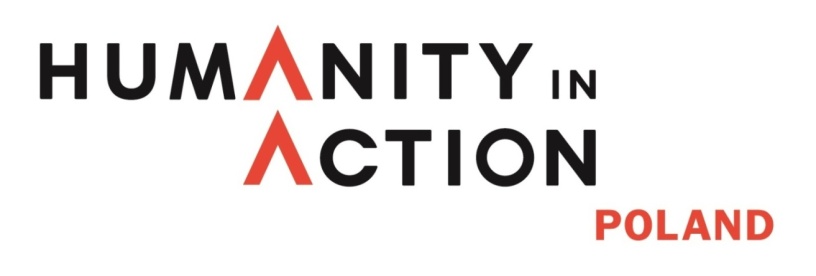Onamaimię (She Has a Name): Combating Sexist Hate Speech in Poland
Kasia Górnicka, Joy Liu, Mariia
Veselovska
2016 Ideas Incubator Fellows
2016 Ideas Incubator Fellows
Growing up, I was called a variety of names.
Some of them likened me to animals or objects, some of them were just
descriptors that I never thought to challenge. I began to listen and absorb
these descriptions. I began to accept them as true.
My experience is not unique. Girls are commonly
and casually called derogatory terms. The problem is often exacerbated when
these terms are not regarded as sexist hate speech because they do not appear
obviously offensive. We selected four of those Polish terms to craft and build
a social campaign against sexist hate speech called Onamaimię (She Has a Name).
Although there isn’t much official research on
the subject, many Polish women told our team they were called derogatory terms
growing up and felt strongly about the sexist nature of these terms. Often,
they were unclear about what qualifies as hate speech and unsure how to react.
We centered our campaign on a few seemingly innocuous words that represent the
beginning of sexist hate speech. We chose the Polish words świnia, pasztet,
laska, and foczka. These words roughly translate to pig, pate, seal, and cane.
All terms directly objectify girls by comparing them to an animal or inanimate
object.
Like most sexist hate speech we experienced,
part of what hurt the most was being unexpectedly confronted with terms like
świnia, pasztet, laska, and foczka. We wanted to re-create this sensation in
some way to see what other people’s reactions would be. By choosing the coffee
cup, a place where a person’s name is
often written, we wanted to make the connection that seeing the terms świnia,
pasztet, laska, and foczka on a coffee cup is essentially replacing a woman’s
name and reducing her personhood. We named the campaign Onamaimię (She Has a
Name) to convey this message.
 In collaboration with Polish artist Aga
Strzeżek, the campaign made illustrations of the four words in a simple, black
and white style as a visual representation of the comparisons that are made
when women are called świnia, pasztet, laska, and foczka. The visuals form the
core of the campaign and are on stickers available at local Warsaw cafes and
restaurants on coffee and other beverage cups. The stickers link to the
Facebook fan page, which has more images, text, and animations diving further
into the four terms. We hope to provide more information and engage people
consistently through the page.
In collaboration with Polish artist Aga
Strzeżek, the campaign made illustrations of the four words in a simple, black
and white style as a visual representation of the comparisons that are made
when women are called świnia, pasztet, laska, and foczka. The visuals form the
core of the campaign and are on stickers available at local Warsaw cafes and
restaurants on coffee and other beverage cups. The stickers link to the
Facebook fan page, which has more images, text, and animations diving further
into the four terms. We hope to provide more information and engage people
consistently through the page.
We implemented the core components of our
campaign, but certain parts took longer than anticipated. In this case, some of
the difficulties included logistical difficulties and time constraints. In
order to adjust, we made a number of modifications. We were originally focused
on designing and distributing coffee cup sleeves, but the ordering process and
time necessary seemed to be an issue. At the suggestion of one of our café
partners, we decided to use stickers, which could be placed on the cup and
include cold beverages as well.
 Through the course of developing, implementing,
and reflecting on the campaign, we learned that it’s important to think about
how to reach an audience that may not already share your beliefs. For us, the
offline component was especially important for this. We found generous partners
who were supportive of our campaign, and we found women who immediately nodded
their head in understanding when we described why these words bothered us. It
is in this spirit of listening, acknowledging, and understanding past and
current hurts that we created this campaign.
Through the course of developing, implementing,
and reflecting on the campaign, we learned that it’s important to think about
how to reach an audience that may not already share your beliefs. For us, the
offline component was especially important for this. We found generous partners
who were supportive of our campaign, and we found women who immediately nodded
their head in understanding when we described why these words bothered us. It
is in this spirit of listening, acknowledging, and understanding past and
current hurts that we created this campaign.
We do this in the hope that one
day, people will no longer use świnia, pasztet, laska, or foczka to describe
girls so the generation after us can see themselves and be seen as who they
are—a whole human being.
Kasia Górnicka
Joy Liu
Mariia Veselovska






















